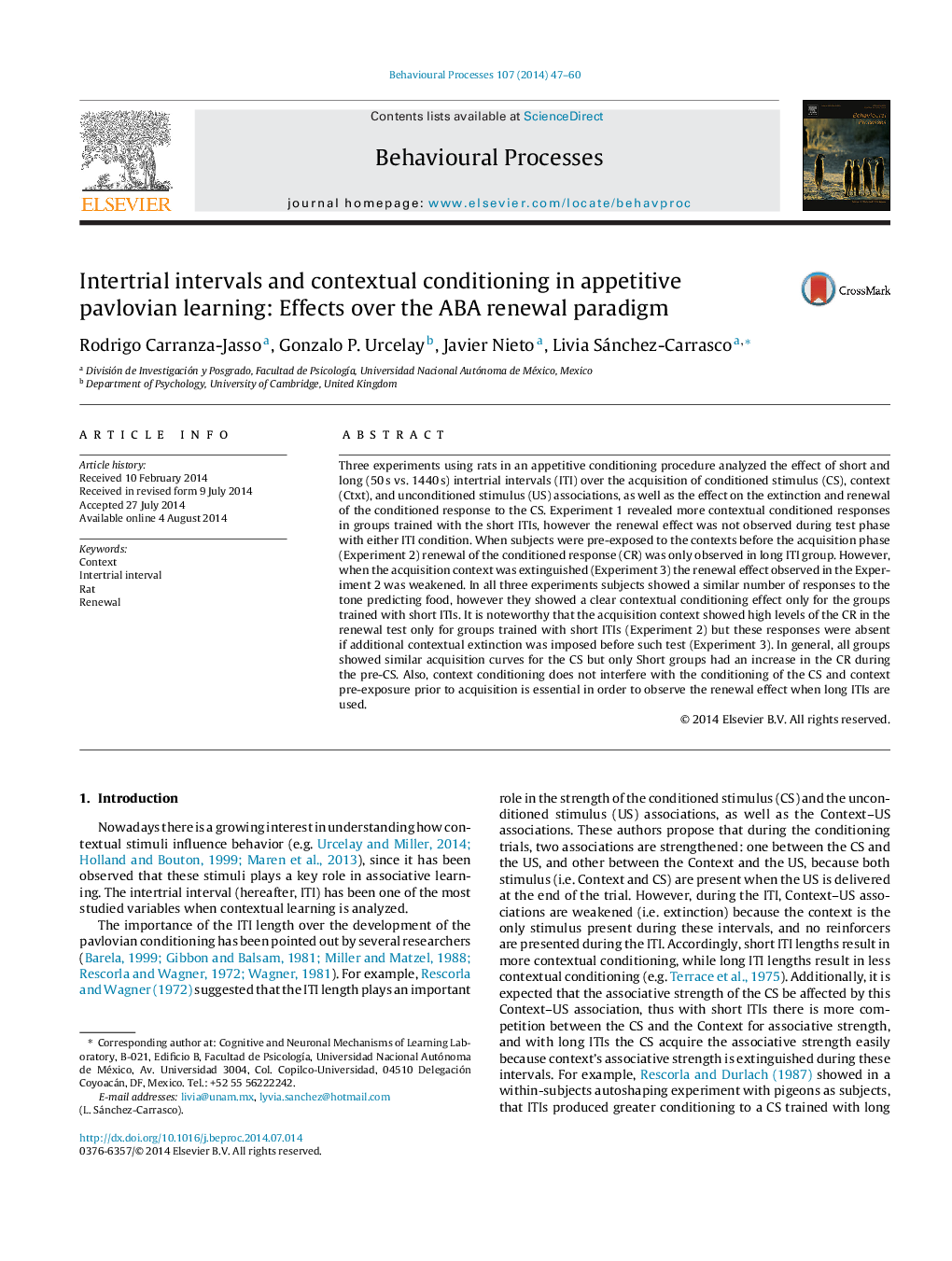| Article ID | Journal | Published Year | Pages | File Type |
|---|---|---|---|---|
| 8497238 | Behavioural Processes | 2014 | 14 Pages |
Abstract
Three experiments using rats in an appetitive conditioning procedure analyzed the effect of short and long (50Â s vs. 1440Â s) intertrial intervals (ITI) over the acquisition of conditioned stimulus (CS), context (Ctxt), and unconditioned stimulus (US) associations, as well as the effect on the extinction and renewal of the conditioned response to the CS. Experiment 1 revealed more contextual conditioned responses in groups trained with the short ITIs, however the renewal effect was not observed during test phase with either ITI condition. When subjects were pre-exposed to the contexts before the acquisition phase (Experiment 2) renewal of the conditioned response (CR) was only observed in long ITI group. However, when the acquisition context was extinguished (Experiment 3) the renewal effect observed in the Experiment 2 was weakened. In all three experiments subjects showed a similar number of responses to the tone predicting food, however they showed a clear contextual conditioning effect only for the groups trained with short ITIs. It is noteworthy that the acquisition context showed high levels of the CR in the renewal test only for groups trained with short ITIs (Experiment 2) but these responses were absent if additional contextual extinction was imposed before such test (Experiment 3). In general, all groups showed similar acquisition curves for the CS but only Short groups had an increase in the CR during the pre-CS. Also, context conditioning does not interfere with the conditioning of the CS and context pre-exposure prior to acquisition is essential in order to observe the renewal effect when long ITIs are used.
Keywords
Related Topics
Life Sciences
Agricultural and Biological Sciences
Animal Science and Zoology
Authors
Rodrigo Carranza-Jasso, Gonzalo P. Urcelay, Javier Nieto, Livia Sánchez-Carrasco,
